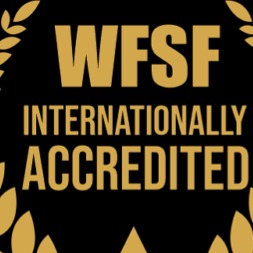What was the challenge?
The Research Council of Norway (RCN) identified five strategic areas in pursuit of ground-breaking research, radical innovation and sustainable development. RCN required a robust evidence base to help develop long-term, priority missions to help solve one or more societal challenges, as well as underpinning structural measures of the research environment in Norway. The five strategic areas include: Oceans; Green transition; Health and welfare; Cohesion and globalisation; and Technology and digitalisation.
How did we approach it?
We adopted a mixed method, participatory approach involving a variety of research tools such as trend analyses, literature reviews, stakeholder interviews, focus groups, crowdsourcing ideas from experts, a survey of the public, future scenario analyses and workshops.
The core foresight work allowed us to examine what might happen in the next ten years in the different strategic areas and wider R&I system in Norway. Scenarios of future states were used as the basis for workshop discussions to stress test potential missions and structural measures that the RCN could consider developing and implementing in the future.
What was the outcome or impact of the work?
Extensive findings from this research were published in a series of nine reports. The research was cited as evidence in the RCN’s input to the 2022 revision of the Long-Term Plan for Research and Higher Education 2019–2028, which specifies the Norwegian government’s ambitions, key objectives and priority areas for research and higher education.
The study also helped inform the RCN’s internal decision making, strategies and organisational activities. In addition, a summary of the findings and proposals was presented to the relevant Norwegian minister.
Project webpage: https://www.rand.org/randeurope/research/projects/2021/future-research-innovation-norway.html
Research outputs:
- Summary report: https://www.rand.org/content/dam/rand/pubs/research_reports/RRA900/RRA966-1/RAND_RRA966-1.pdf
- Addressing future societal challenges in Norway: Detailed methodology report: https://www.rand.org/content/dam/rand/pubs/research_reports/RRA900/RRA966-1/RAND_RRA966-2.pdf
- A summary of potential cross-cutting missions to address future societal challenges in Norway: https://www.rand.org/content/dam/rand/pubs/research_reports/RRA900/RRA966-1/RAND_RRA966-3.pdf
Structural measures to develop a resilient research and innovation environment in Norway: https://www.rand.org/content/dam/rand/pubs/research_reports/RRA900/RRA966-1/RAND_RRA966-4.pdf
Health and welfare: An analysis of trends, future directions and potential missions to address societal challenges in Norway: https://www.rand.org/content/dam/rand/pubs/research_reports/RRA900/RRA966-1/RAND_RRA966-5.pdf
Oceans: An analysis of trends, future directions and potential missions to address societal challenges in Norway: https://www.rand.org/content/dam/rand/pubs/research_reports/RRA900/RRA966-1/RAND_RRA966-6.pdf
Technology and digitalisation: An analysis of trends, future directions and potential missions to address societal challenges in Norway: https://www.rand.org/content/dam/rand/pubs/research_reports/RRA900/RRA966-1/RAND_RRA966-7.pdf
Cohesion and globalisation: An analysis of trends, future directions and potential missions to address societal challenges in Norway: https://www.rand.org/content/dam/rand/pubs/research_reports/RRA900/RRA966-1/RAND_RRA966-8.pdf
Green transition: An analysis of trends, future directions and potential missions to address societal challenges in Norway: https://www.rand.org/content/dam/rand/pubs/research_reports/RRA900/RRA966-1/RAND_RRA966-9.pdf





